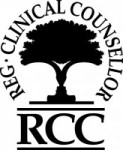Do I really need therapy? I can usually handle my problems on my own.
Counseling can be a helpful resource at those times when we feel emotionally drained and overwhelmed, and our normal coping skills have been stretched to the breaking point. I can help you to develop some clarity around difficult issues, and identify some of the negative core beliefs and reservations that restrict you from meeting your personal goals. I encourage my clients to develop self-confidence and self-reliance, which results in feelings of empowerment and resilience. While it is completely possible to go it on your own, with the guidance of a skilled facilitator, positive change can happen more quickly and more safely.
How do I know if you are the right counselor for me?
Finding the right counselor can be a process of trial and error. Because the therapeutic relationship has been repeatedly shown to be the leading factor in the success of therapy, it is very important that you feel comfortable and safe with your counselor. You should feel heard and your feelings validated. Choosing a therapist that is registered with the BCACC can give you some assurance that your helper has an advanced level of education and expertise, and is guided by ethical guidelines and best practices. I encourage you to interview me to see if this is a good fit for you.
I have heard EMDR can bring about dramatic improvement? What is it?
EMDR is a very powerful tool for shifting deeply stuck patterns of dysfunction. It is the acronym for Eye Movement Desensitization and Reprocessing, a therapy developed and scientifically proven to be effective in the treatment of trauma and many other mental health disorders. There is a lot of great information on the internet about EMDR and I will be adding links to some of those resources. Dr. Kathleen Young explains EMDR well on her blog, "Treating Trauma".
How do you set your fees?
My session fees are based on a 55 minute session, and in accordance with the recommended fee guidelines of the British Columbia Association of Counselors. You can view their fee schedule at http://www.bc-counsellors.calls.net/general/recommended-fee-schedule. Fees are payable at the end of each session, and can be paid with all major credit cards, Interac, and cash.
Do I have to talk about my painful past?
While our past experiences have had a strong influence on shaping us, I work primarily with what is going on in the present moment with clients. Since our bodies hold the record of past traumas, therapy can be completely effective without ever talking about traumatic memories. In fact, it can be harmful for clients to talk about the details of their trauma since they stand the risk of re-traumatization -- paving superhighways for the neurons responsible for activating painful triggers. Extensive research in neuroscience is showing that talk therapy that does not address how trauma is stored in the body is not recommended.




